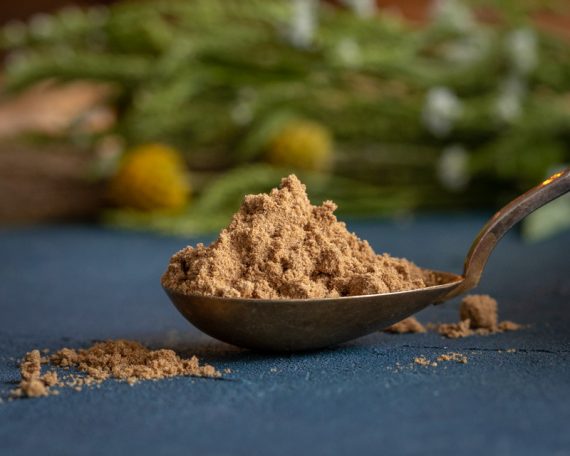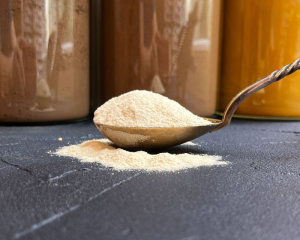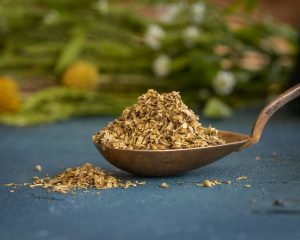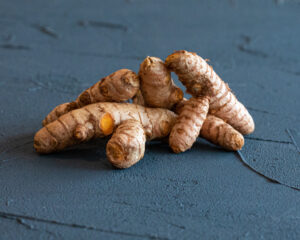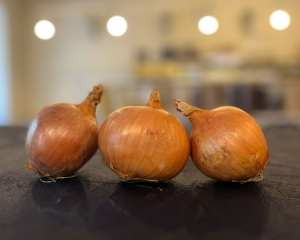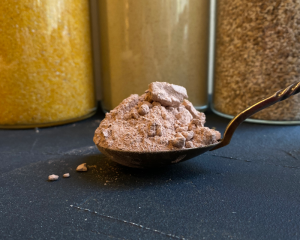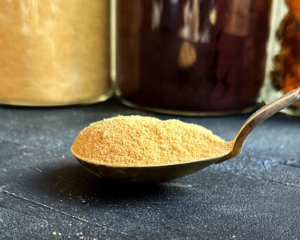Organic ground coriander (RAW)
From 1.75€
Coriander is perhaps one of the most underrated herbs, despite its worldwide popularity as a culinary spice.
Coriander is believed to originate from the Middle East and the Mediterranean and is found in regional cuisines around the world.
It belongs to the Apiaceae family, has a thin stem and beautiful white or pale pink flowers, and all parts of the plant are edible (young leaves and mature seeds). The plant itself is wonderfully delicate, with a bright, earthy aroma in spring. It is also known as Chinese parsley and in Sanskrit as “dhanyaka”, meaning “rich”.
Although coriander grows all over the world, it does not like heat very much. It is an annual plant with a relatively short growing season, as it prefers the cooler spring and autumn weather. Once the plant is established in light, well-drained soil in full sun, it will germinate again the following spring.
Benefits and uses of coriander
Historically and traditionally, coriander has been used to relieve gastrointestinal discomfort.
In Ayurveda, it is used as a medicinal herb. In terms of energy, coriander is considered in Ayurvedic terminology to be both a warming and a cooling herb, depending on the part of the plant used. The leaves are thought to be cooling and can be made into a juice or poultice used to relieve mild skin irritation, while the seeds are slightly warming, which can aid digestion, nutrient absorption and help eliminate toxins.
Although coriander is mainly known for its powerful effects and its beneficial effects on the digestive system, it can also be beneficial for the urinary system and the lungs, as it helps to get rid of heat and thus mucus.
Ground coriander seeds are very valuable in stews and sauces as they thicken well thanks to their fibrous husk. Coriander is appreciated by those who cannot eat spicy food. It harmonises and flavours many dishes. It is used in pizzas, pulses, soups, sauces, stews and pickles. Ground coriander is usually added at the end of cooking.
NOTES. The information provided here should not be construed as advice on treatment or any other health issues. We encourage you to make personal health decisions based on your personal knowledge and consideration of different sources of information.
100% organic coriander
-
Store in a cool, dry place.


